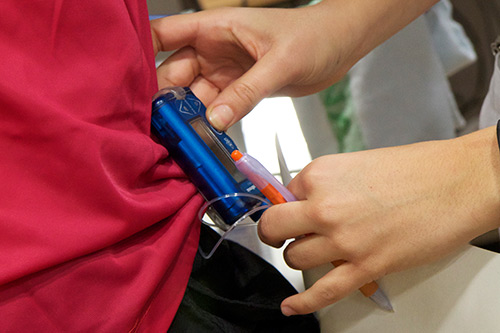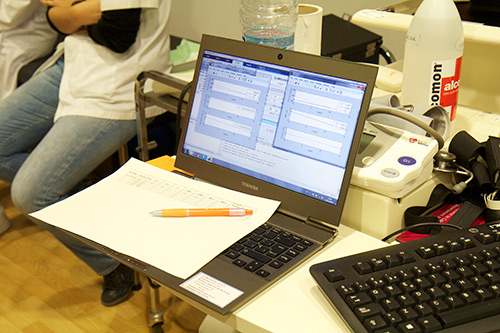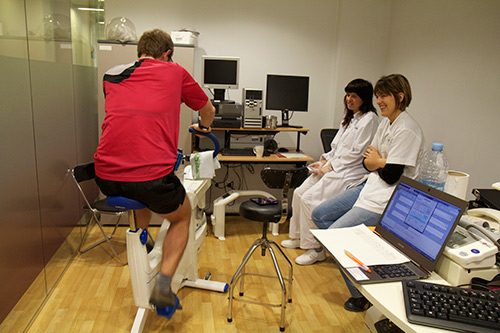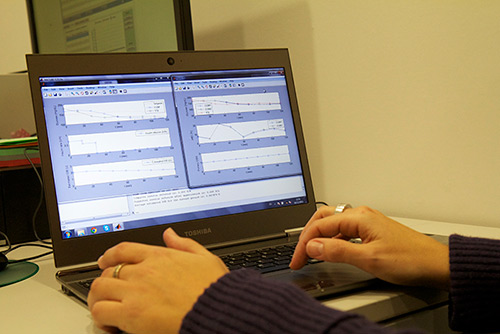
PROJECTS
SAFE-AP
NEW METHODS FOR AN EFFICIENT AND SAFE DOMICILIARY ARTIFICIAL PANCREAS IN TYPE 1 DIABETES
Administrative Data
Project reference: DPI2013-46982-C2-1-R
Title: New methods for an efficient and safe domiciliary artificial pancreas in type 1 diabetes – SAFE-AP
Participating centers: Coordinated project
Subproject 1: Universitat Politècnica de València (coordinator)
Subproject 2: Universitat de Girona
Principal Investigator: Jorge Bondia (coordinator); Josep Vehí
Funded by: Ministerio de Economía y Competitividad
Duration: 01/01/2014-30/06/2018
Funding awarded: Subproject 1: €219,010.00
Subproject 2: €200,860.00
Project Summary
The artificial pancreas, or automatic glucose control, is a technology that major companies in the diabetes field are investing in, as it is expected to revolutionize the treatment of type 1 diabetes, freeing patients from the current decision-making burden and improving metabolic control. To date, several artificial pancreas prototypes have been validated in controlled hospital studies. However, home use of the artificial pancreas requires, in addition to an efficient controller capable of handling everyday conditions, safety mechanisms that allow its use without additional risk to the patient:
(a) Fault tolerance in instrumentation and communication between devices.
(b) Patient monitoring that allows the detection/prediction of risk situations, beyond hypoglycemia, such as abnormal patient states and controller malfunction.
(c) Robustness and effectiveness of the controller against disturbances such as typical intakes in the patient’s diet, exercise, stress and concomitant diseases.
(d) Optimization of controller tuning in clinical practice to address particular metabolic characteristics, transient situations and metabolic changes due to disease progression.
Addressing these issues is essential for a device like the artificial pancreas to be approved by regulatory agencies and reach the market, as well as for its acceptance by patients and medical staff, supported by tools that facilitate its management and oversight.
These challenges constitute the main objective of this project: the development of new methods and tools for the long-term efficiency and safety of the home artificial pancreas. This is reflected in the following specific objectives:
Objective 1. Develop and validate methods for detecting and diagnosing instrumentation failures. These will include obstructions in insulin infusion, loss of signal from the continuous glucose monitor, failed sensors, calibration errors, and more.
Objective 2. Develop and validate methods to improve the accuracy of continuous glucose monitors and mitigate significant errors in glucose readings or biases due to metabolic states related to hemodynamic changes such as exercise and stress, present in a patient’s daily life.
Objective 3. Develop methods for risk assessment. This will address the prediction of severe hypoglycemia and hyperglycemia, the detection of abnormal or altered patient states outside the controller’s operating range, and controller malfunction or detuning due to metabolic changes.
Objective 4. Develop and validate control algorithms for fault tolerance and robustness to disturbances in the patient’s daily life.
Objective 5. To design and implement a smartphone-based artificial pancreas for home use that integrates the above methods for efficiency and safety over the life of the system.
Objective 6. Design and implement a remote monitoring system to optimize performance and safety. The system will serve as a knowledge-generating tool, utilizing big data mining techniques to assist medical staff in decision-making.
Researchers
Universitat Politècnica de València
- Jorge Bondia (coordinator)
- José Luis Díez
- Sergio Romero
- Beatriz Ricarte
- Juan Fernando Martín
- Vanessa Moscardó
- Eslam Montaser
- Daniel Ruíz
Universitat de Girona
- Josep Vehí (co-PI)
- Remei Calm
- Anna C. Comas
- Charrise Raamkimsoon
- Silvia Oviedo
- Lyvia Regina Biagi Silva Bertachi
- Aleix Beneyto
- Arthur Hirata Bertachi
Hospital Clínico de Valencia
- F. Javier Ampudia
Hospital Francesc de Borja de Gandía
- Paolo Rossetti
Hospital Clínic de Barcelona
- Ignacio Conget
- Marga Giménez
- Carmen Quirós
Imperial College London
- Pau Herrero
- Pantelis Georgiou





